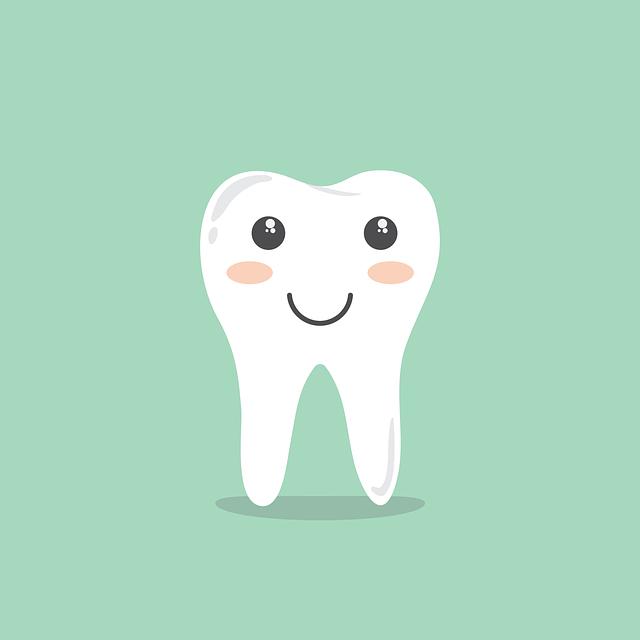Does Salt Help Whiten Your Teeth? Dental Secrets Exposed
Have you ever wondered if that humble white mineral sitting on your kitchen counter could be the secret to achieving a brighter, whiter smile? Well, get ready to have your dental secrets exposed because we’re about to delve into the age-old question: Does salt help whiten your teeth? In this article, we’ll explore the science behind this common belief and separate fact from fiction. So, grab your toothbrush and get ready to uncover the truth about this dental myth.
1. The Science Behind Teeth Whitening: Can Salt Really Help?
Teeth whitening is a popular cosmetic procedure that many people turn to in order to achieve a brighter smile. One method that has gained attention is the use of salt for teeth whitening. But does salt really help in this process? Let’s explore the science behind it.
1. Abrasive properties: Salt has abrasive properties, which means it can help remove surface stains from your teeth. When used in moderation and with caution, salt can act as a gentle scrub to eliminate stains caused by coffee, tea, or tobacco. However, it’s important to note that excessive scrubbing can damage the enamel, so it’s best to consult with a dentist before attempting this method.
2. Natural antibacterial properties: Salt possesses natural antibacterial properties that can help reduce the growth of bacteria in your mouth. This can be beneficial for oral health, as bacteria can contribute to tooth discoloration. However, it’s important to remember that salt alone cannot replace regular oral hygiene practices such as brushing and flossing.
3. DIY salt-based remedies: Some people mix salt with other natural ingredients to create DIY teeth whitening remedies. For example, a mixture of salt and baking soda is often used as a homemade toothpaste. While these remedies may offer temporary whitening effects, it’s important to approach them with caution and seek professional advice to ensure they are safe and effective for your specific dental needs.
In conclusion, salt can potentially help in teeth whitening due to its abrasive and antibacterial properties. However, it’s crucial to use salt-based remedies in moderation and consult with a dental professional to ensure they are appropriate for your individual situation. Remember, maintaining good oral hygiene and regular dental check-ups are the foundation for a healthy and bright smile.
2. Debunking Dental Myths: Exploring the Role of Salt in Teeth Whitening
In the quest for a brighter smile, many people turn to various home remedies and DIY solutions. One popular myth is that salt can effectively whiten teeth. However, it’s important to debunk this common misconception and understand the role of salt in teeth whitening.
1. Salt as an abrasive: Salt has natural abrasive properties, which can help remove surface stains from teeth. However, using salt alone will not provide significant whitening effects. It can only help to a certain extent in removing superficial stains caused by factors like coffee, tea, or smoking.
2. Salt as a disinfectant: Salt has antiseptic properties and can help kill bacteria in the mouth. While this is beneficial for maintaining oral hygiene, it does not directly contribute to teeth whitening. Regular brushing and flossing, along with professional dental cleanings, are still the most effective ways to prevent tooth discoloration.
3. Salt and enamel erosion: One concern with using salt for teeth whitening is its potential to erode tooth enamel. Salt is abrasive, and excessive or aggressive use can wear down the protective enamel layer, leading to increased tooth sensitivity and vulnerability to cavities. It is crucial to consult with a dentist before attempting any at-home whitening methods.

3. Understanding the Effects of Salt on Tooth Enamel and Stains
When it comes to oral health, is crucial. Salt has long been used as a natural remedy for various ailments, but its impact on teeth is often overlooked. Here’s what you need to know:
1. Enamel erosion: Salt, especially in high concentrations, can potentially erode tooth enamel over time. The abrasive nature of salt crystals can gradually wear down the protective layer of enamel, leaving teeth vulnerable to sensitivity and decay. It’s important to note that moderate consumption of salt through diet is generally safe and does not pose a significant risk to enamel.
2. Stain formation: While salt itself does not cause tooth stains, it can exacerbate the effects of other stain-causing substances. For example, consuming salty foods or using salt in homemade toothpaste can lead to increased plaque buildup, which in turn can contribute to teeth discoloration. Regular dental hygiene practices, such as brushing and flossing, are essential for minimizing the staining effects associated with salt.
3. Prevention and maintenance: To protect your tooth enamel and prevent stains, it’s crucial to maintain a balanced diet and practice good oral hygiene. Limiting your intake of highly salty foods and beverages can help minimize enamel erosion. Additionally, regular visits to the dentist for professional cleanings and using a toothpaste specifically formulated to remove stains can help keep your teeth healthy and bright.
4. Salt as a Natural Whitening Agent: Separating Fact from Fiction
When it comes to natural whitening agents, salt often finds its way into the conversation. Some claim that salt can effectively whiten teeth, while others dismiss it as mere fiction. Let’s delve into the facts and debunk any myths surrounding salt as a teeth whitener.
Fact:
- Salt has been used for centuries as a cleansing agent due to its abrasive properties. When used in moderation, it can help remove surface stains from teeth, resulting in a brighter smile.
- Its antimicrobial properties also contribute to maintaining oral hygiene by reducing the growth of bacteria in the mouth.
- Using salt as a mouth rinse can help alleviate minor gum inflammation and provide a refreshing sensation.
Fiction:
- Salt alone cannot provide dramatic whitening results comparable to professional teeth whitening treatments or over-the-counter whitening products.
- Excessive use of salt or scrubbing too vigorously can erode the enamel, leading to tooth sensitivity and potential damage.
While salt can be a useful adjunct to your oral care routine, it is important to consult with a dentist before incorporating it into your regimen. They can provide personalized advice tailored to your specific oral health needs.
5. Exploring Alternative Whitening Methods: Where Does Salt Fit In?
Salt is a common household ingredient that has been used for centuries as a natural teeth whitener. While it may not be as effective as professional whitening treatments, salt can still provide some benefits when it comes to brightening your smile. Here are a few ways salt can be incorporated into your teeth whitening routine:
1. Saltwater rinse: Mix a teaspoon of salt with warm water and use it as a mouth rinse. This can help reduce bacteria in your mouth and prevent tooth discoloration caused by plaque buildup.
2. Salt and baking soda scrub: Combine equal parts salt and baking soda to create a gentle scrub for your teeth. Gently brush your teeth with this mixture to remove surface stains and reveal a brighter smile.
3. Salt and lemon paste: Create a paste by mixing salt and lemon juice. Apply this mixture to your teeth and leave it on for a few minutes before rinsing. The acidic properties of lemon combined with the abrasive nature of salt can help remove stains and whiten your teeth.
Remember, while salt can be an effective natural teeth whitener, it is important to use it in moderation and not rely solely on it for long-term results. It is always a good idea to consult with your dentist before trying any alternative whitening methods to ensure they are safe for your teeth and gums.
6. The Pros and Cons of Using Salt for Teeth Whitening
Using salt for teeth whitening has gained popularity in recent years. While it may seem like a natural and cost-effective solution, it’s important to consider both the pros and cons before incorporating it into your oral care routine.
Pros:
1. Affordable and easily accessible: Salt is a common household ingredient that can be easily found in any kitchen. Using salt for teeth whitening is a cost-effective alternative to expensive whitening treatments or products.
2. Natural antibacterial properties: Salt has natural antibacterial properties that can help reduce the buildup of plaque and bacteria in the mouth, promoting oral health.
3. Gentle exfoliation: When used in moderation, salt can act as a gentle exfoliant, helping to remove surface stains and brighten the appearance of your teeth.
Cons:
1. Abrasive nature: Salt can be abrasive and may damage the tooth enamel if used excessively or with too much force. It’s crucial to be cautious and avoid vigorous scrubbing to prevent enamel erosion.
2. Limited effectiveness: While salt may help remove some surface stains, it may not be as effective as professional whitening treatments or products specifically formulated for teeth whitening.
3. Potential for gum irritation: Salt can be irritating to the gums, especially if you have sensitive gums or any existing gum disease. It’s important to use salt sparingly and monitor your gum health when incorporating it into your oral care routine.
In conclusion, using salt for teeth whitening can have its benefits, such as affordability and natural antibacterial properties. However, it’s essential to be mindful of its abrasive nature and potential for gum irritation. Consulting with a dentist is recommended to ensure safe and effective teeth whitening methods suitable for your specific oral health needs.
7. Expert Opinions: Dentists Weigh In on the Efficacy of Salt for Whitening Teeth
When it comes to the efficacy of salt for whitening teeth, dentists have varying opinions. While some believe that salt can help remove surface stains and brighten the teeth, others argue that its effectiveness may be limited.
Those in favor of using salt as a natural whitening agent argue that it acts as a mild abrasive, helping to scrub away plaque and stains. Additionally, salt has antibacterial properties that can contribute to overall oral health. Some dentists even recommend mixing salt with baking soda to create a homemade whitening paste.
However, it is important to note that salt alone may not provide dramatic whitening results. Professional teeth whitening treatments conducted by dental professionals or using professional-grade products are generally considered to be more effective and efficient in achieving noticeable whitening. Therefore, it is advisable to consult with your dentist before solely relying on salt for teeth whitening purposes.
- Pros of using salt for teeth whitening:
- Mild abrasive properties help remove surface stains
- Antibacterial properties contribute to oral health
- Cost-effective and easily accessible
- Cons of using salt for teeth whitening:
- Limited effectiveness in achieving noticeable whitening
- Potential risk of enamel damage with excessive use
- May not address underlying causes of tooth discoloration
8. The Truth About DIY Salt-based Teeth Whitening Recipes
When it comes to teeth whitening, many people turn to DIY salt-based recipes in the hopes of achieving a brighter smile. However, it is important to understand the truth behind these popular methods before giving them a try.
1. Potential benefits: Some individuals claim that salt-based teeth whitening recipes can effectively remove surface stains and brighten the teeth. The abrasive nature of salt can help scrub away plaque and tartar, which may contribute to a whiter appearance.
2. Potential risks: Despite the potential benefits, it is crucial to be aware of the risks associated with these DIY recipes. Salt is highly abrasive and can damage the enamel if used excessively or with too much force. Additionally, salt-based remedies may not be suitable for individuals with sensitive teeth or gum conditions, as they can cause irritation and discomfort.
3. Alternative options: If you are considering salt-based teeth whitening, it is advisable to consult with a dental professional first. They can provide personalized advice based on your oral health and recommend safer alternatives, such as professional teeth whitening treatments or over-the-counter whitening products approved by dental associations.
9. Protecting Your Oral Health: The Potential Dangers of Excessive Salt Use
Excessive salt use can have detrimental effects on your oral health, leading to several potential dangers that should not be ignored. It is important to be aware of these risks and take steps to protect your oral health. Here are some key points to consider:
- Increased risk of gum disease: High sodium intake can contribute to inflammation in the gums, making them more susceptible to gum disease. This can lead to symptoms such as redness, swelling, bleeding, and even tooth loss if left untreated.
- Accelerated tooth decay: Consuming excessive amounts of salt can create an acidic environment in your mouth, which can erode tooth enamel and increase the risk of cavities. This can result in tooth sensitivity, pain, and the need for dental treatments such as fillings or root canals.
- Worsening of existing dental conditions: Individuals with pre-existing oral health issues, such as dry mouth or oral infections, may experience a worsening of these conditions due to excessive salt consumption. It is essential to manage salt intake to prevent further complications.
By being mindful of your salt intake and adopting a balanced diet, you can significantly reduce the potential dangers to your oral health. Incorporate healthier alternatives, such as herbs and spices, to enhance the flavor of your meals without relying on excessive salt. Regular dental check-ups and good oral hygiene practices, including brushing and flossing, are crucial for maintaining optimal oral health. Remember, taking care of your oral health is essential for overall well-being.
10. Dental Secrets Exposed: Unveiling the Most Effective Teeth Whitening Techniques
Discover the secrets to achieving a dazzling smile with our comprehensive guide to the most effective teeth whitening techniques. Say goodbye to stains and discoloration with these professional tips and tricks!
1. Professional Teeth Whitening Treatments
If you’re looking for immediate and significant results, professional teeth whitening treatments are your best bet. These procedures are conducted by dental experts in a controlled environment, ensuring safety and optimal outcomes. Some popular options include:
- In-Office Whitening: This procedure involves the application of a powerful whitening gel and the use of specialized light or laser to accelerate the whitening process.
- Take-Home Whitening Kits: Your dentist can provide you with customized whitening trays and professional-grade whitening gel to use at home. This option offers convenience and flexibility.
2. Natural Teeth Whitening Remedies
If you prefer a more natural approach, there are several tried-and-true remedies you can try at home. While these methods may not provide instant results like professional treatments, they can gradually whiten your teeth over time. Consider these options:
- Baking Soda: Create a paste by mixing baking soda with water and brush your teeth with it. Baking soda has mild abrasive properties that can remove surface stains.
- Oil Pulling: Swish a tablespoon of coconut oil in your mouth for 10-15 minutes before spitting it out. This ancient technique is believed to reduce bacteria and promote oral hygiene.
- Strawberries: Mash up strawberries and rub the pulp on your teeth. The natural acids and enzymes in strawberries can help remove stains and brighten your smile.
With these teeth whitening techniques, you can achieve the bright, confident smile you’ve always desired. Remember to consult with your dentist to determine the best approach for your specific needs and maintain good oral hygiene practices for long-lasting results.
Frequently Asked Questions
Q: Does salt help whiten your teeth?
A: Yes, salt can be an effective ingredient in teeth whitening.
Q: How does salt whiten teeth?
A: Salt acts as a natural abrasive that helps to remove surface stains from the teeth, making them appear whiter.
Q: What is the recommended method of using salt for teeth whitening?
A: It is advisable to mix salt with a small amount of toothpaste and gently brush the teeth for about two minutes. Rinse thoroughly afterward.
Q: Are there any risks or side effects associated with using salt for teeth whitening?
A: When used in moderation, salt is generally safe for teeth whitening. However, excessive use or vigorous brushing may damage the tooth enamel, leading to tooth sensitivity or erosion.
Q: Can salt alone provide significant whitening results?
A: While salt can help remove some surface stains, it is not a substitute for professional teeth whitening treatments. Salt can be used as a supplementary method for maintaining a brighter smile.
Q: Are there any other natural remedies that can be combined with salt for teeth whitening?
A: Yes, combining salt with baking soda or lemon juice can enhance its whitening properties. However, it is essential to be cautious with acidic ingredients like lemon juice, as they can erode tooth enamel if overused.
Q: How long does it take to see results when using salt for teeth whitening?
A: The results may vary depending on the individual’s oral hygiene, diet, and the severity of stains. Generally, it may take several weeks of consistent use to notice a visible improvement in tooth color.
Q: Is it recommended to consult a dentist before using salt for teeth whitening?
A: While seeking professional advice is not mandatory, it is always recommended to consult a dentist before trying any teeth whitening method, including salt. They can assess your oral health and provide personalized guidance.
Q: Can salt be a long-term solution for maintaining white teeth?
A: Salt alone cannot provide a long-term solution for maintaining white teeth. Regular dental hygiene practices such as brushing, flossing, and professional cleanings are crucial for maintaining a healthy and bright smile.
Q: Are there any alternative teeth whitening methods that are more effective than salt?
A: Yes, professional teeth whitening treatments offered by dentists are the most effective way to achieve significant and long-lasting teeth whitening results. These treatments use specialized products and techniques to ensure optimal outcomes.
To Conclude
In conclusion, after exploring the topic of “Does Salt Help Whiten Your Teeth? Dental Secrets Exposed,” we have gained valuable insights into this widely debated subject. While salt is a common household ingredient with various uses, its effectiveness in teeth whitening remains questionable.
Firstly, it is important to understand that tooth discoloration can have multiple causes, including consumption of certain foods and beverages, smoking, and poor oral hygiene. While some proponents argue that salt can act as a natural abrasive, removing surface stains and promoting a brighter smile, scientific evidence to support this claim is limited.
Moreover, excessive use of salt as a teeth whitening method may have adverse effects on oral health. Salt’s abrasive properties can potentially erode tooth enamel, leading to sensitivity and other dental issues. Therefore, it is crucial to exercise caution and consult with dental professionals before resorting to any unverified methods.
Ultimately, the most effective way to maintain a white smile is by adopting a comprehensive oral hygiene routine. Regular brushing, flossing, and professional dental cleanings are key factors in achieving and preserving dental health and a bright smile. Additionally, considering lifestyle changes such as reducing the consumption of stain-causing substances like coffee or red wine can also aid in keeping teeth dazzling.
In conclusion, while salt may have some anecdotal support as a teeth whitening agent, its actual effectiveness remains inconclusive. Relying solely on salt as a whitening solution may jeopardize oral health. Emphasizing good oral hygiene practices and seeking professional dental advice are fundamental in achieving a radiant and healthy smile.






